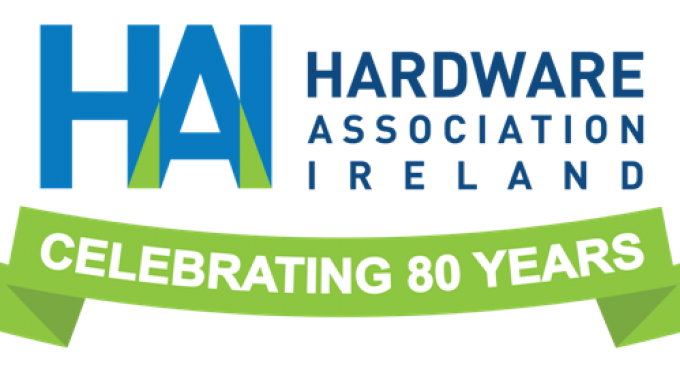Hardware Association Ireland Calls For Imaginative Measures to Tackle Housing Crisis

Hardware Association Ireland (HAI) has called on the Minister for Finance to address the housing crisis in the forthcoming budget through the introduction of a Derelict Property Renovation Incentive Scheme. HAI has also urged the Minister to reduce VAT on construction from 13.5% to 9% for a two-year period in order to stimulate house building activity.
“The Derelict Property Renovation Incentive scheme would offer similar stimulants to the Home Renovation Incentive scheme to encourage potential homeowners to renovate derelict properties for residential use,” said HAI chief executive Annemarie Harte. “This would act as a fast track method of increasing supply and with over 200,000 vacant dwellings according to Census 2016 do much to help relieve the housing situation. It would also complement Pillar 5 of the Rebuilding Ireland plan to reclassify and incentivise the use of underutilised vacant premises for both residential and commercial use.”

Annemarie Harte.
According to Ms Harte the new scheme would help make homes affordable for potential buyers at the same time as bringing more homes to the market. “This is the sort of imaginative response to the housing crisis which has been sorely lacking over the past number of years,” said Ms Harte. “Government policy and actions have been characterised by a poverty of imagination with almost all measures aimed at the supply side and almost none addressing the demand side. It is time the government acted to help would-be homeowners to help themselves.”
Ms Harte said that there is a need for additional stimulus to encourage new builds and reduce the number of vacant dwellings. “The Derelict Property Renovation Incentive would address the vacant dwellings issue while the temporary reduction in the VAT rate would encourage new builds,” she added.
Extend HRI Scheme
In a recommendation aimed at existing homeowners, HAI has urged the government to extend the Home Renovation Incentive (HRI) scheme beyond its planned end date of 31st December 2018 for a further 24 months.
“We believe this will allow the scheme to achieve greater penetration in rural areas,” Ms Harte said. “Recent statistics from the Revenue show that the scheme has been highly successful with almost €2 billion spent on works up to 30th June 2018. However, 65% of that spend has been undertaken in just four counties – Dublin, Meath, Wicklow and Kildare. Extending the scheme to December 2020 would allow time for it to spread to the other 22 counties in a more pronounced and impactful way.”
HAI has also proposed lowering the floor of the qualifying spend to €3,000 from its current base of €4,405 to encourage small home dwellers, and to increase the ceiling to €50,000 from €30,000 as an incentive for homeowners to pursue additional home improvement projects. “Evidence to-date suggests that the HRI scheme is indeed acting as a strong encouragement for otherwise latent home improvement works, thereby making the scheme effectively cost neutral for the Exchequer,” Ms Harte added.
Brexit and Irish Timber Sector
Turning to Brexit, Ms Harte said that while it would impact all sectors of the economy the timber trade is especially vulnerable. “The Irish timber sector contributes €2.6 billion to the economy and sustains 12,000 full time rural jobs. Over half the output of Irish sawmills is exported, and 95% of those exports go to the UK, compared to 41% for food and drink. Ninety per cent of panel products produced in Ireland are exported, with two thirds going to the UK. The UK is the biggest importer of wood in Europe and our only logical market for exports. We call on Government to ensure its Brexit strategy takes account of the specific needs and opportunities of the timber industry.”







